Researchers discuss myeloid-targeted agents for solid tumors during ASCO joint session
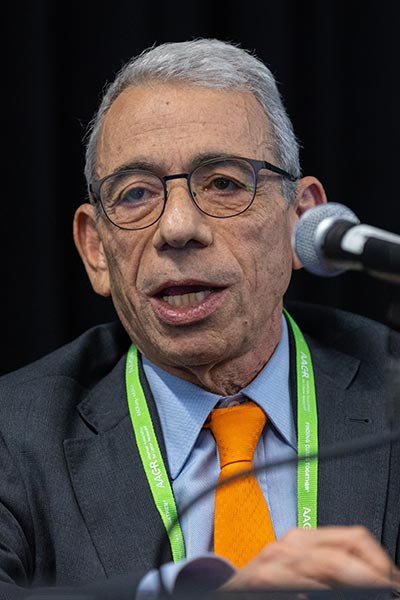
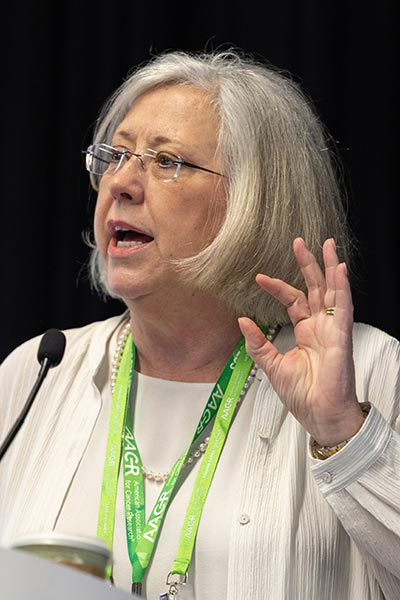
Each year at the Annual Meeting, representatives from the AACR and the American Society of Clinical Oncology (ASCO) come together for a joint session examining a hot topic in bench-to-bedside cancer research. This year’s session, co-chaired by AACR Past President Lisa M. Coussens, PhD, FAACR, and ASCO President Eric P. Winer, MD, FASCO, explored the role of myeloid cells in cancer development and reviewed how basic science discoveries are creating opportunities for new therapeutic targets in solid tumors.
The session, AACR-ASCO Joint Session: Myeloid-targeted Agents for Solid Tumors, was held on Monday, April 17, and can be viewed on the virtual meeting platform by registered Annual Meeting participants through July 19, 2023.
Karin E. de Visser, PhD, Professor of Experimental Immunobiology of Cancer at Leiden University Medical Center and Senior Group Leader in the Division of Tumor Biology and Immunology at the Netherlands Cancer Institute, Amsterdam, discussed the role of eosinophils in immune checkpoint blockade in advanced breast cancer.
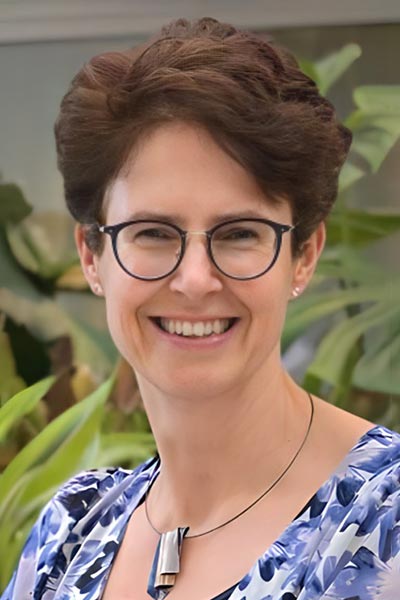
“We have incredible knowledge today about the processes going on in the tumor microenvironment while a tumor is developing, becoming invasive, and spreading through the body,” de Visser said. She added that research is providing fundamental insights into how the intense crosstalk between adaptive and innate immune cells helps tumors not only escape immune control, but also resist immune checkpoint blockade therapy.
De Visser’s lab has a special interest in systemic inflammation during cancer evolution and is studying the systemic immune landscape of breast cancer patients, focusing on the triple-negative subtype.
Most studies on response to immune checkpoint blockade focus on T cells, while the role of myeloid cells in this context is less clear, de Visser pointed out.
Her team observed a systemic increase in eosinophils in responders to checkpoint inhibitor therapy compared to non-responders. In several other studies, an increase in eosinophils has been observed in different cancer types and correlated with clinical response to immune checkpoint blockade, de Visser added.
To understand whether eosinophils are simply bystanders or causally involved in therapy response, the researchers turned to in vivo studies. In a mouse model, depleting eosinophils led to reduced antitumor effect of immune checkpoint blockade, indicating that these cells are involved in the therapeutic benefit.
Further studies unraveled the underlying mechanisms through which eosinophils are recruited to the tumors and attract activated CD8-positive T cells. The ultimate goal of this research is to go back to the clinic to engage eosinophils and improve the response to immune checkpoint inhibitors in patients, de Visser concluded.
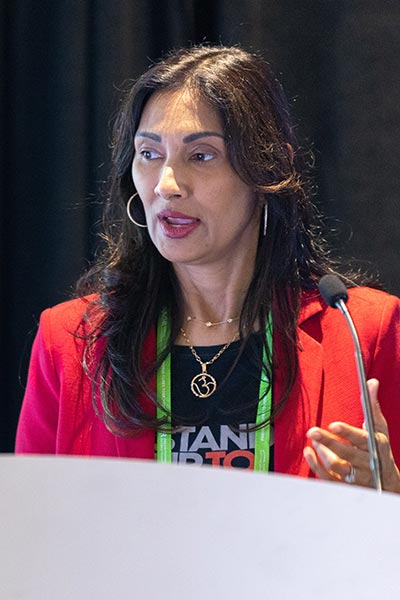
Padmanee Sharma, MD, PhD, Professor in the Departments of Genitourinary Medical Oncology and Immunology at MD Anderson Cancer Center, discussed the mechanisms through which myeloid cells drive resistance to immune checkpoint therapy and therapeutic strategies to overcome it.
She noted that cancers that do not respond to immune checkpoint therapy have few effector T cells and significant subsets of immunosuppressive myeloid cells.
Her team is researching common upstream epigenetic pathways that define the immunosuppressive myeloid cells in resistant tumors and could be inhibited to reduce the myeloid cell subsets and increase effector T cells.
“Clearly, immune checkpoint therapy has joined the ranks of surgery, radiation, and chemotherapy as a pillar of cancer treatment, and I think rational combination strategies to overcome immunosuppressive pathways mediated by myeloid cells will improve responses,” Sharma said.
Because multiple immune checkpoints exist and compensatory pathways are activated in the tumor microenvironment, Sharma said checkpoints have to be evaluated in both pre- and on-treatment tumor samples in order to guide therapeutic decisions. “We cannot use a single biopsy to guide decisions that we make in the clinic,” she said.
“The organ-specific microenvironment will need to be considered in order to understand immunologic subsets, including myeloid cells, and the subsequent immune responses against cancer cells in these organs. We really have to start thinking what organ are we looking at to understand immune responses.”
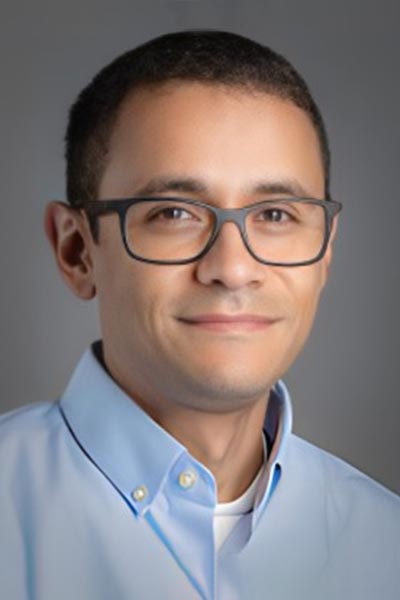
Paulo C. Rodriguez, PhD, Senior Member in the Department of Immunology Immuno-Oncology Program at Moffitt Cancer Center and Research Institute, shared research from his lab designed to reprogram the functionality of immunosuppressive myeloid cells through modulation of stress responses, specifically the endoplasmic reticulum (ER) stress responses that occur in the tumor microenvironment.
“It’s well known that the ER is the organelle where most of the folding and production of proteins occurs in the cells. But in the presence of tumors and a stressful tumor microenvironment, there are different cues that will drive activation of ER stress both in tumor cells and in infiltrating lymphocytes,” Rodriguez explained.
“When the cells undergo ER stress, the first thing that will happen is they will activate different branches associated with the unfolded protein response (UPR),” he added.
Rodriguez described emerging research that is providing important insight into the mediators of the UPR, including work in his lab looking at PERK, a kinase that has been shown to play a key role in inducing stress responses.
His group and others have shown the key role of PERK and other mediators of UPR in the activity of myeloid cells and T cells. “I think great opportunity exists by targeting these different mediators in reprogramming the protective immunity in the cancer host,” Rodriguez said. “Additionally, we believe the elimination of different mediators of UPRs in cancer cells can induce immunogenic cell death and, again, induce an indirect reprogramming of immunosuppressive myelopoiesis in cancer hosts.”
More from the AACR Annual Meeting 2025
View a photo gallery of scenes from Chicago, continue the conversation on social media using the hashtag #AACR25, and read more coverage in AACR Annual Meeting News.

